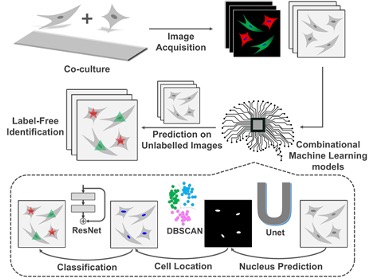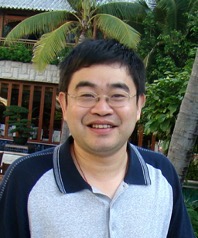Biomedical Coating Combination Optimized
by High Throughput Biochip and Cell Image Machine Learning
Hongye Hao, Junjie Huang, Yunfan Xue, Jian Ji*
MOE Key Laboratory of Macromolecule Synthesis
and Functionalization, Department of Polymer Science and Engineering, Zhejiang
University, Hangzhou 310027, PR China.
ABSTRACT: The combinatorial
actions of multiple biomolecules in extracellular matrix (ECM) play a key role
in selectively inducing cell growth and regulating tissue generation. These
include the combinations of nonspecific resistance caused by highly hydrated
molecules and specific recognition produced by active ligands, which achieved
high selectivity in complex human body environment. However, most of current
studies were confined to qualitative investigation of single components, which
were unable to reveal the basic regularity and optimize the combination. Thus,
it is urgent to develop new platforms for efficient fabrication and
characterization of combinational bio-interface.
High throughput screening has thrown us a new sight
for analysis of the interactions between cells and vast number of biomaterials
by using platforms with high integration degree. In this work, a high
throughput biochip and cell image machine learning were combined to investigae
the combined effect of nonspecific resistance and specific recognition towards
cell competitiveness between ECs and SMCs, which is essential to design the
biomedical coating for cardiovascular system.

Figure 1. Overview of Label-free identification of co-cultured cells via machine learning
Keywords: machine learning; co-culture; cell identification

Prof. Jian Ji is the director of Institute of Biomedical Macromolecule in Zhejiang University, and Qiushi chair professor in Zhejiang University. He received his Ph.D. degree in Polymer Science from Zhejiang University in 1997 and became a full professor in 2004. In 2010, he received the Distinguished Young Scholars Award of the National Science Foundation of China. And in 2015,he was award as Cheung Kong Scholars by Ministry of Education. He is the fellow of The Royal Society of Chemistry and became Associate editor for Journal of Materials Chemistry B since 2018. His research focuses on biomedical implant, tissue engineering and nanomedicine, as well as Biomaterials Genome Engineering.